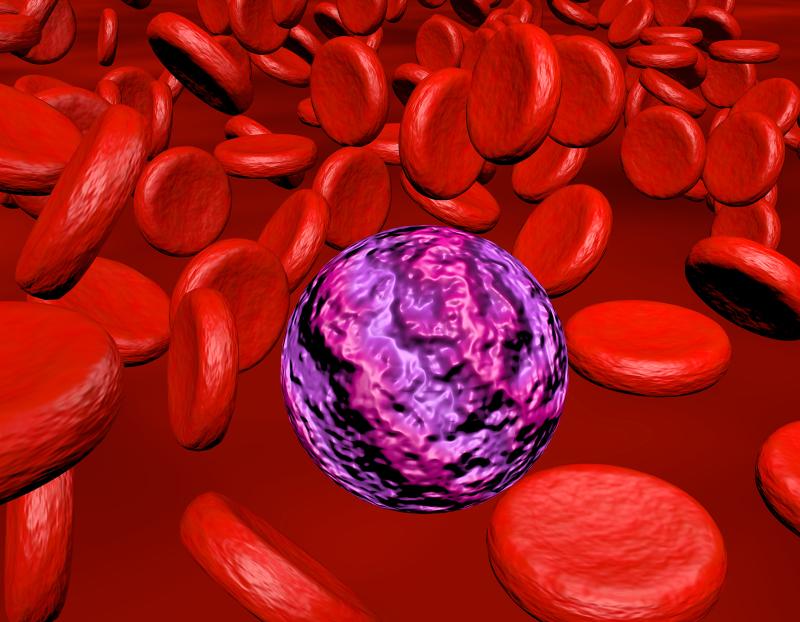
Targeted treatment with enasidenib appears to be well tolerated in older adults with acute myeloid leukaemia (AML) harbouring an isocitrate dehydrogenase 2 (IDH2) mutation who are not fit for standard chemotherapy regimens, according to data from a phase I/II trial.
A total of 39 patients (median age, 77 years; 59 percent had antecedent haematologic disorder) received total enasidenib doses of 50–650 mg/day, administered orally in continuous 28-day treatment cycles.
Researchers obtained bone marrow biopsies and/or aspirates and peripheral blood samples at baseline, on day 1 of treatment cycle 2, every 28 days for the next 12 months and then every 56 days thereafter during enasidenib treatment.
The median number of enasidenib treatment cycles was 6.0 (range 1–35). Commonly reported treatment-related adverse events were indirect hyperbilirubinaemia (31 percent), nausea (23 percent), fatigue, and decreased appetite and rash (18 percent each).
Treatment-related grade 3–4 cytopoenia occurred in eight patients (21 percent), and none developed treatment-related high-grade infections.
There were 12 patients who achieved response (overall response rate, 30.8 percent, 95 percent confidence interval [CI], 17.0–47.6), including seven who showed complete remission (18 percent). The median duration of any response was not reached at a median follow-up of 8.4 months.
The median overall survival was 11.3 months (95 percent CI, 5.7–15.1) in the entire cohort and not reached in the subgroup of responders.
Being noncytotoxic and generally well tolerated with minimal drug interactions, enasidenib may prove beneficial to older patients with mutant-IDH2 AML when used in combination with other AML treatments, the researchers said.